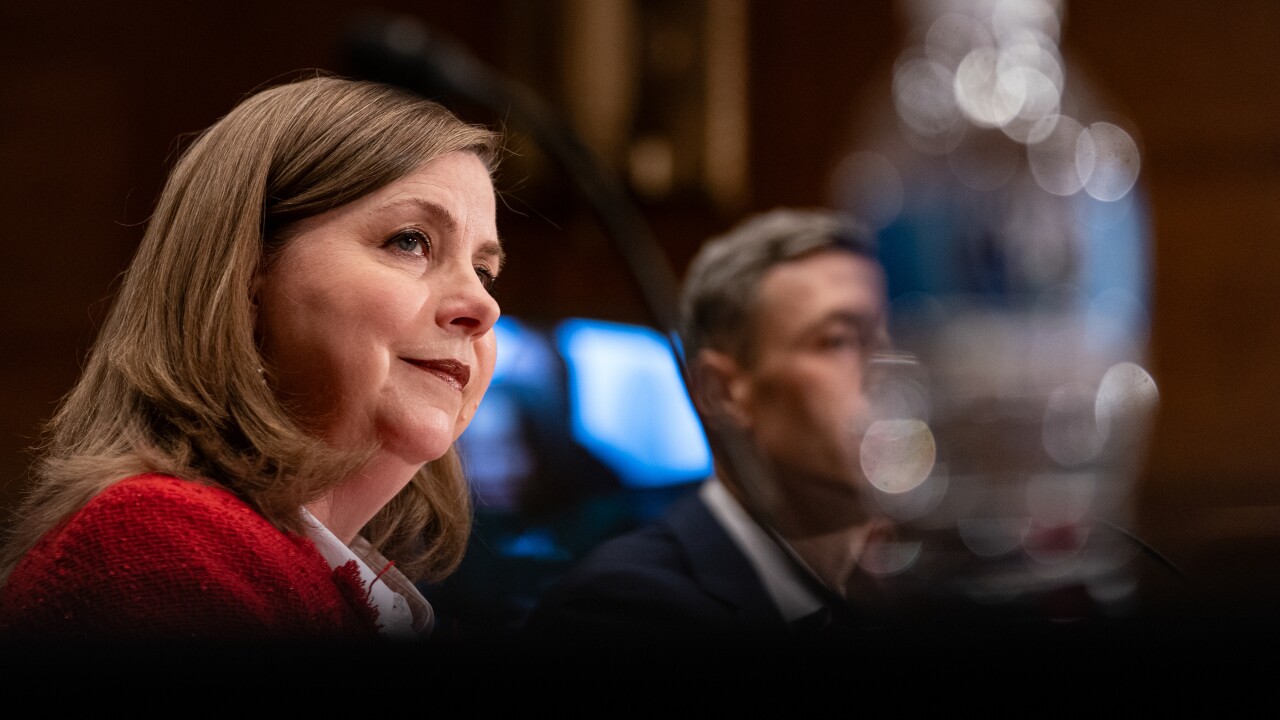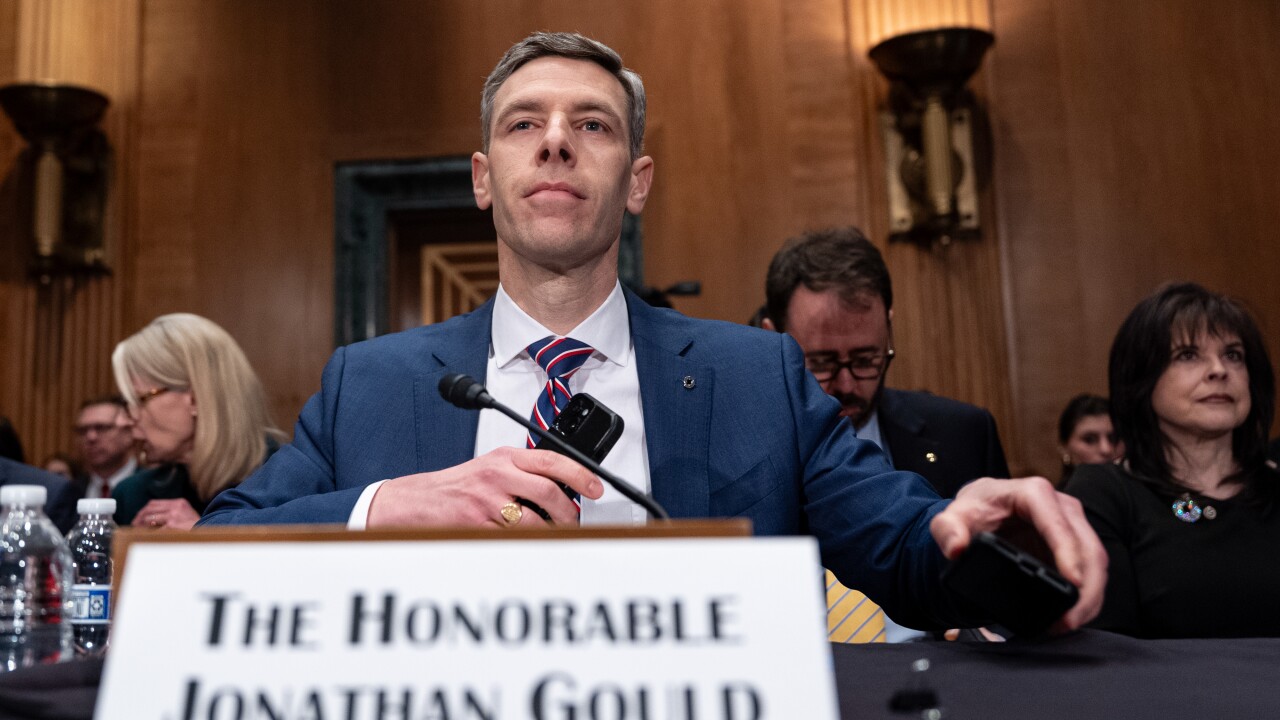SAN DIEGO - While record heat and humidity cooked much of the country last week, credit union leaders enjoyed this coastal city's cool breezes.
Processing Content
The National Association of Federal Credit Unions drew a crowd of 2,200 to its 28th annual convention, which the trade group titled after its seaside location: "Mastering the Waves of Change."
The waves were mostly gentle. National Credit Union Administration Chairman Norman E. D'Amours used his turn before the crowd of 2,200 to invite everyone to a huge town meeting of sorts in the fall of 1996.
"We're going to ... bring the family together in one place at one time to talk about whether we're doing the best we can," he said. "I want ... to talk about whether we are serving as best we can the underserved."
Mr. D'Amours says credit unions should remain true to their purpose of "serving people of small means" or risk losing advantages, such as their tax exemption. But some credit union leaders wish Mr. D'Amours would tone down the warnings.
"I have been criticized by a few people," Mr. D'Amours acknowledged. "They say, 'You are a regulator. You're business is safety and soundness - butt out of everything else.' I say, 'Wrong. I am a credit union regulator, and credit unions - unlike banks and S&Ls - have been given a social mission by their Congress, and that was to help empower those who are underserved.'"
Talking with reporters later, Mr. D'Amours added: "It bothers them that credit unions have roots, and they don't want to go back to them. If people forget the fundamentals, that's the day we're in trouble."
Mr. D'Amours said small credit unions must be nurtured, not run out of business. While asset and member totals keep rising, the number of credit unions has been cut in half during the last 20 years. In 1994, Mr. D'Amours' "family" lost 402 members.
"I think he would like to reverse that trend," said NAFCU president Ken Robinson. "So no one can say he served six years and he lost 3,000 credit unions.
"He thinks of himself as the keeper of the movement."
* * *
Warren Heller, research director at Veribanc Inc., said the movement is making money.
"The word 'robust' is a very good word to describe the credit union industry's health," Mr. Heller said.
Veribanc, a financial institution rating firm in Wakefield, Mass., calculated average annual return on assets for credit unions and banks back to 1985.
* * *
At his press conference Mr. D'Amours took credit for taming the Credit Union Reform and Enhancement Act, legislation sponsored by Sen. Alfonse M. D'Amato that aims to curb the risky activities at state credit unions.
Mr. D'Amours said the New York Republican's original version of the bill was much worse than the version approved by the Senate Banking Committee last month.
"I think the first D'Amato bill was too much like Firrea," Mr. D'Amours said, referring to the 1989 Financial Institutions Reform, Recovery, and Enforcement Act, which imposed a host of limits on banking operations.
But the NCUA persuaded the Banking Committee chairman to grandfather all state credit union powers in effect on May 1, Mr. D'Amours said. The other major change, he said, requires the NCUA to prove that an activity or investment authorized by a state is unsafe or unsound. Sen. D'Amato's original legislation would have put that burden on the states, Mr. D'Amours said.
"It doesn't do the violence to state charters that some people are claiming it does," he said.
* * *
Speaking of state-chartered credit unions, NAFCU - which represents institutions with federal charters - has been debating for months whether to open its membership.
While no formal vote was taken at the annual convention, members did discuss whether state charters should be accepted. While 75% of NAFCU's members back the idea, Mr. Robinson said 25% oppose it. He noted: "Sixteen percent said 'no,' and 9% said 'hell no.'"
Even the association's board is split, so it is unclear when, if ever, state credit unions will be admitted to NAFCU.
"Someday that day may come ... but it ain't here yet," Mr. Robinson said.
Mr. Robinson also reported that NAFCU members donated $189,000 to help the people affected by the Oklahoma City bombing. Half the total will go to children of credit union employees killed in the tragedy. The other half will be sent to surviving credit union employees.
* * *
One of the major "waves of change" for credit unions is technology. NAFCU, in fact, announced it is planning "Tech CU '96" - a technology trade show scheduled for Feb. 8-9 in San Jose, Calif. The exhibit hall at last week's convention also showcased "CU 2000" - a demonstration of emerging financial services technologies.
Frank Terzuoli, senior manager at Andersen Consulting in San Francisco, said technological advances will help credit unions compete with banks.
It costs up to five times more to deliver a financial product through a branch than electronically, he said. While banks already own and depend on expensive branch networks, credit unions can take advantage of the cost savings technology offers.
"Electronic banking and branch banking do not go together," Mr. Terzuoli said. "The longer banks wait, the more electronic banking will advance" and the greater the opportunity for credit unions.
"I would not be saying this to a bank," he noted.
* * *
NCUA was touting some technology of its own at the convention.
The agency demonstrated its Automated Integrated Regulatory Examination System, or Aires, which regulators will begin using in the fourth quarter.
Douglas D. Verner, the NCUA's director of technology and information services, said new software will allow the agency to tap directly into a credit union's computers and download the information needed for an exam. Mr. Verner said the agency will not access credit union computers without notice.
* * * *
Economic trends were the subject of "Five Big-Wave Trends" outlined by Alan Sinai, global chief economist for Lehman Brothers Inc.
Mr. Sinai predicted the current economic expansion will be "the longest, best, and widest" in history, and that interest rates will continue to fall.





